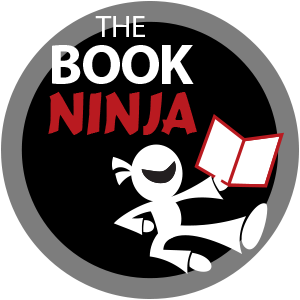Do you need an editor? Most experienced writers and almost every entrepreneur who wants a credibility-boosting book will say, “Absolutely!” However, I’m still astounded at the number of people who feel having friends look over the book or edit their own work is enough. Some of them may be afraid someone else will steal their idea (let me save you the worry, your general idea has probably been done before) and others may have serious budget limitations. Here are three ways to get your book edited at next to nothing, and three things to ask an editor before you hire them:
Creative Editing on a Budget:
Friends & Family—Yep, I’m putting this in here. Because while friends and family shouldn’t be the only sets of eyes that see your manuscript prior to publishing, objective feedback is still essential. If you have a friend or family member you know will give you honest feedback, by all means, lend them your manuscript.
College Interns—A little-tapped resource, universities are full of students wanting real-world experience. Call your local college and ask to speak to an English professor. You can get a Junior or Senior English major to review your manuscript for next to nothing. Some will even do it as an internship purely for the real-world experience (ie: free).
Your Old Teacher—My grandmother was a high school English teacher for over 30 years. I had her proof read my very first manuscript, and of course it came back marked up. If you have relationships with teachers who taught English at your old school, college, or even your kids’ teachers, ask one of them if they’d like to proof read your book.
Keep in mind these creative methods to finding editors should not be substituted 100% for professional editors who make it their life’s work to polish manuscripts. This is why you should still seek out a pro to give your manuscript that final once-over.
Key Questions to Ask a Potential Editing Pro to Make Sure You’re Getting a Good One
Em vs. En—If an editor can’t tell you the difference between an em dash and an en dash, run away. An em dash (—) replaces a comma, or pause, in a sentence. I use them a lot. 🙂 An en dash (–) replaces the word “to” in lists, such as in a range of numbers: 1994–2012. Note: neither of these is a hyphen. This is one major key to make your book appear traditionally published and compete in the traditional book selling world, even though it may be self-published.
Serial Commas—Book editing should follow the guidelines of the Chicago Manual of Style, as most traditional publishers do. These guidelines include the use of what’s called a “serial” comma. Due to the amount of space in a book and the typical reader’s time spent with their nose between the pages, you need to put in more breaks, or breathing areas. A comma gives your reader permission to breathe. In AP style, the style guide typically used in journalism, magazine publishing and online articles, there is no use of a serial comma. This is due in part to the lack of available space, attention spans of the readers or the lack of needing to include extra pauses for someone reading one page vs. a 25-page chapter. In a short AP style article, a serial comma would not appear before the word “and” in a list, such as: red, white and blue. But in a CMS style book, the comma would appear before the word “and,” such as: red, white, and blue.
Heading Caps—In books, usually chapter titles and subheadings follow the CMS guideline of heading caps. This means all words in a title or subheading are capitalized, except prepositions. For example, my book title 21 Ways to Write & Publish Your Non-Fiction Book has every word capped except the word “to.” If I spelled out the word “and” in the title, it would also appear uncapped. This rule can be broken, depending on the personality of the book, but a professional editor should know what it means.
Having multiple sets of eyes on your manuscript is important. The average typo for even a traditionally published book is one typo per every four pages. Traditional publishers usually have about four different editors each reading the manuscript twice, not to mention the author or any editors the author had look over the manuscript before it was accepted for publishing. If you want your book’s quality to compete in this dog-eat-dog marketplace, you should get your book professionally edited once—at bare minimum.


I published two books without a professional editor. That was not a good idea. What is the cost of professional editing?
Barbara – according to the Writer’s Market guide, a standard copy-editor can range between $3-5 per page. Developmental editors can cost up to (and sometimes above) $7,000 per manuscript.
Awesome! Agreed 100%. Professional editing is a must. Looking forward to getting to the point of needing a pro!
Another way to get someone to edit a book is to do what I did. I found (actually, she found me) a newly graduated copy editor who was looking for experience. She also wanted to specialize in historical fiction and nonfiction. Since she was new, she wanted experience for her portfolio, so she agreed to edit my work on a commission of the profits from my novel. I have also been giving her PR. I didn’t have to put out any money up front and she gets experience. Definitely a win-win!
That’s great! It would also fall under the “college interns” option in the article above. many people don’t realize college interns doesn’t just mean people currently in school, but new graduates as well. Many of them need experience for their resumes so they can get jobs or clients, and it can create a win-win as it did in your experience!